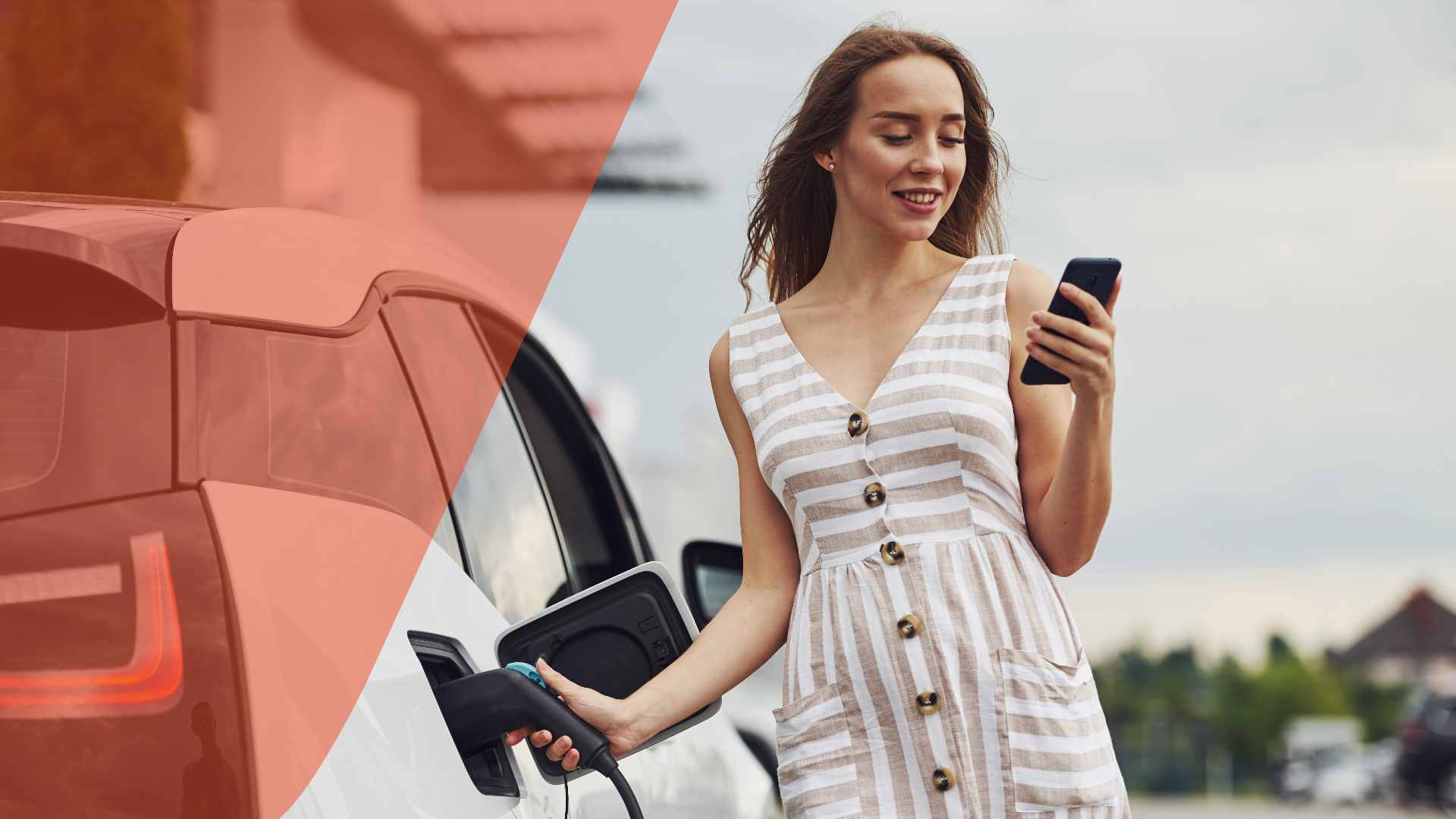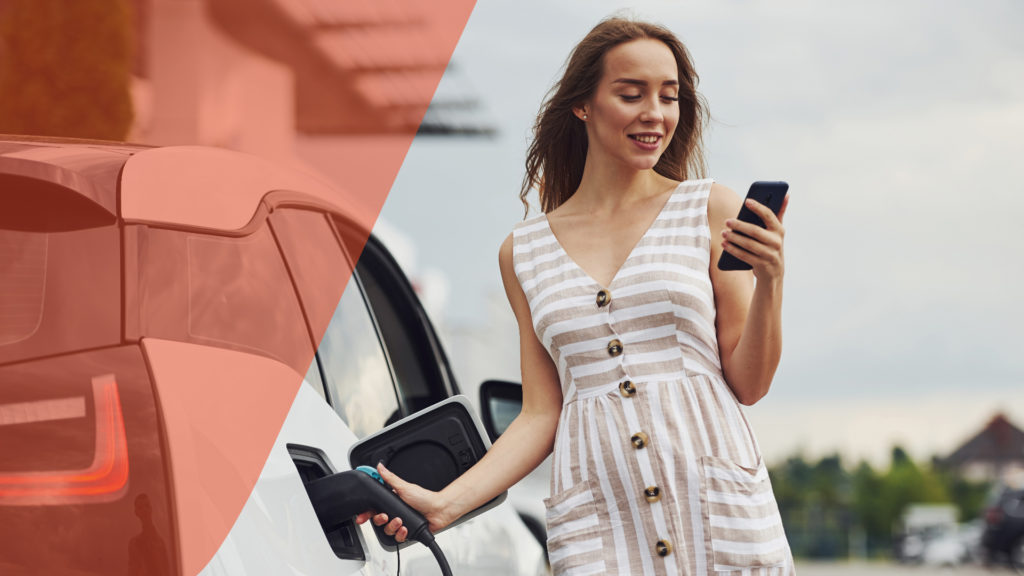Ready to lease your new car?
Browse our range and apply today!

After years of using a regular filling station, adapting to charging your electric vehicle can be a daunting experience – but it only requires a little preparation. Eventually, charging your car will become second nature, just like charging your phone or laptop. Here are some of the most common charging questions we get at Nifti.
Can I plug an EV into a regular outlet?
Yes. Most electric vehicles come with a regular three-pin plug ‘trickle charger’ for the house or garage, or to get you out of a sticky situation when on the road. Unfortunately, using a standard plug is the slowest charging method available, and unless you already have access to an outdoor plug, it might be a bit awkward.
It’s important to understand that this method should only be used temporarily or if you are stuck. Standard sockets are not meant for high levels of power for a long time and extension reels or cables should not be used. Typically they are not designed to carry full rated current for lengthy periods and can overheat. Running cables out the front window of a house also isn’t ideal.
Where do I source a home wall-box charger?
There are a number of providers of wall-box chargers in Ireland, but the first thing to do is apply for the SEAI grant. This scheme provides a grant up to the value of €600 towards the purchase and installation of a home charger unit by a fully qualified electrician who is registered accordingly with Safe Electric Ireland. The grant will only cover off-street installation on private or rented property with express permission from the property owner. Typically, a 7kW home charger ranges from €700 to €1100 plus fitting. Your grant will go towards the overall cost. A simple web search will locate your closest supplier.
Can I install an EV charger at home myself?
No. Charger installation needs to be performed by a registered installer, who can assess your property and help you to decide on the best location. The charger itself can be mounted on a wall in your driveway or on a wall in your house. Key things to consider are the distance to your car and the location of your electricity meter and fuse box. The further the distance between the fuse box and the charger, the more the installation may cost you.

Should I charge my EV to 100% every night or is 80% sufficient?
This depends on your daily commute, and different manufacturers offer different advice. Here at Nifti, we believe that if you need to use the full range of your EV or close to it, then you should take 100% of the charge available. If you nip out on the school run and don’t have far to go for work, then between 80% or 90% will suffice. The other myth we need to address is draining your EV battery down as low as possible before charging. This isn’t needed or advised and will not improve your range in the long run. Modern EV batteries are sophisticated and ready to take a charge whenever possible.
How many EV charge points are in Ireland and where are they?
The Irish charger network is now fairly comprehensive and growing each month. At the moment, the ESB has 1,350 charging stations on the island of Ireland. There are an additional 400 charge points run by private operators such as Easy Go or Ionity. Some of these have fast charge capability and are usually situated on the motorway network. At these stops you can take up to 80% charge in as little as 30 minutes if your vehicle has the CCS2 fast charge capability.
Finding chargers is easy through the onboard car navigation, which locates chargers nearest to you. If your EV is older, you might find the range of apps available on your phone easier to use than your vehicle’s navigation.
Are public EV charging stations free in Ireland?
No. When the infrastructure was in its infancy, there was no charge applied at many charging stations, but now most stations in the Republic of Ireland have a fee to use. Some stations in Northern Ireland are still free to use.
How much does it cost to charge an electric car?
This all depends on where you charge your vehicle. ESB introduced pay-as-you-go and membership price plans to use public EV charging stations in 2020. Fees are €4.50 per month and between 23c and 33c kWh, depending on the charger you use. GoCharge allows you to charge your car for 30c per kW hr. Electric Ireland recommends charging overnight at a night rate to obtain the best value.
For example, charging a Kia Niro from 0% to 100% would cost around €7. That car has a WLTP range of 455km, so if you drive an average of 20km per day, you would get a little over 22 days of driving from that €7. CSO data suggests the Irish average driving distance is around 14km per day, so if you were to charge during the day, those same 22 days of driving would cost a shade over €12.
By comparison, fuelling the most efficient diesel would cost considerably more at current fuel prices. The best thing to do is get into the habit of plugging your car in at night, which is the most cost efficient and effective way of charging.
How do I pay for EV charging in Ireland?
Home charging is simply added to your domestic electric bill, whilst charging on the go can vary depending on where you charge. The ESB network requires a dedicated card with which you can pay as you go or opt for a monthly fixed fee. Other providers such as Ionity and Easy Go require a fob or a phone app.
How long does it take to charge an electric car?
This all depends on your car and where you’re doing the charging. The quickest option is using a fast charger, which will get you from 0% to 80% in around 30 minutes. This is mainly used for topping up your battery when you are out on a long journey. For a 40kW battery, a typical 7kW home charging station will charge an electric car from 0% to 100% over the course of around 3-5 hours. For cars with larger battery capacities over 60kW, the charging time will be in the region of 6-8 hours. Keep in mind that if you don’t have a home charger and rely on the three-pin plug ‘trickle charger’ then it could take 18 hours or more, depending on your battery size.

Browse our range and apply today!